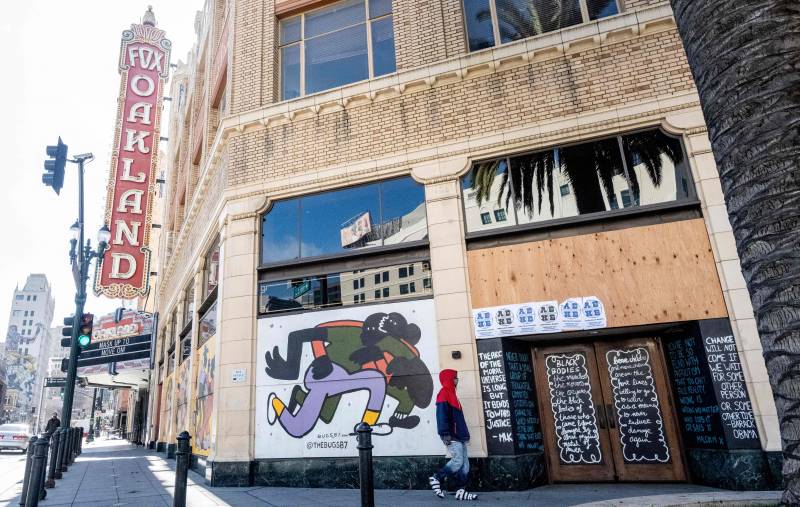Oakland and Marin County this Tuesday became the latest jurisdictions in California to launch a guaranteed income program for hundreds of low-income residents, joining a growing progressive movement around the country that views direct cash payments as a crucial strategy in lifting families out of poverty.
Building on a high-profile guaranteed income experiment conducted in Stockton, the pilot programs in Marin County and Oakland will be among the first in the nation to send aid exclusively to residents of color.
“Our vision is an Oakland that has closed the racial wealth gap, and where all families thrive,” Oakland Mayor Libby Schaaf said at a Tuesday morning press conference. “We believe that guaranteed income is the most transformative policy that can achieve this vision and whose time has come.”
A key premise of the basic income experiments is to let residents use the payments however they see fit, bucking the post-welfare reform trend of placing requirements or restrictions around government aid.
Boosted by Stockton’s results, our goal is to add to the body of evidence that unrestricted cash to our lowest-income residents – and particularly those who’ve suffered from historical racial inequity – can improve outcomes + change systems.
— Libby Schaaf (@LibbySchaaf) March 23, 2021
“Guaranteed income is based on the belief that those in poverty are best able to identify what they need to escape that poverty,” said Oakland City Councilmember Loren Taylor. “If someone is tethered to a life of poverty, we can’t untether them by tying them down with more strings.”
The Oakland Resilient Families program will send $500 a month for 18 months to 600 families that identify as Black, Indigenous or as other people of color, chosen at random from a pool of applicants.
Half of the spots will be reserved for families with a household income at or below 50% of the area median income (roughly $65,000 a year for a family of four), with the other half for families earning below 138% of the federal poverty level (about $36,000 annually for a family of four).
Additionally, the participants will be split into two groups: one comprised of East Oakland residents and a separate group made up of residents from other parts of the city. Residents interested in applying for the basic income program can visit the website of Oakland Resilient Families.
The program will be funded by donations, chiefly from the nonprofit Blue Meridian Partners.
Jesús Gerena, CEO of the Family Independence Initiative, an anti-poverty nonprofit, said $6.75 million has been raised so far to begin payments to families this spring.
Gerena affirmed that this initiative, with its explicit focus on racial disparities in a region beset by income inequality, recognizes “the value of our under-resourced communities and their contributions.”


